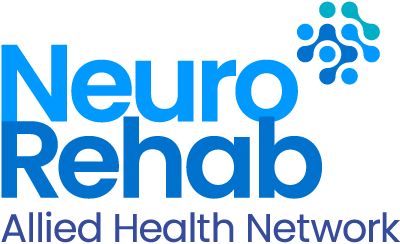Support for swallowing difficulties (dysphagia)
At NeuroRehab, we support people of all ages who are living with swallowing difficulties, also known as dysphagia. Whether you are noticing subtle changes or experiencing significant mealtime challenges, our team is here to help you stay safe, comfortable and confident when eating and drinking.
We offer flexible therapy in clinic, at home, or in supported accommodation settings.
Immediate capacity
Thomastown &
Tullamarine
What is dysphagia?
Dysphagia is the medical term for a swallowing disorder. Swallowing is something we do hundreds of times a day, when we eat, drink, and even when we manage our saliva. When swallowing is disrupted, it can lead to serious health issues such as:
Aspiration pneumonia (caused by food, drink, or saliva entering the lungs)
Malnutrition
Dehydration
Choking
Swallowing safely requires coordination between your muscles and sensory system. If these systems are disrupted by neurological, developmental or age-related conditions, swallowing may become difficult or unsafe.
Signs of swallowing difficulties
Some people may not realise they have dysphagia. If you or someone you support shows any of the following signs, it’s worth seeking a swallowing assessment from a speech pathologist:
Choking and gagging
Unexplained or frequent chest infections
Coughing during or after meals, snacks and drinks
Food remaining in the mouth after eating
Voice changes after eating such as a raspy, gravelly or gurgly sounding voice
Face changes during eating such as watering eyes and pained appearance
Vomiting or reflux
Frequent throat clearing
Difficulty keeping food or fluids in the mouth
Refusal to eat or drink
Difficulty managing saliva.
Swallowing and mealtime assessments
Our speech pathologists provide comprehensive swallowing assessments for adults and children. These can take place:
At our NeuroRehab clinics with dedicated dysphagia support
At local radiology centres offering videofluoroscopy (a moving X-ray of swallowing)
In your home, supported independent living (SIL) or aged care facility
At day programmes or other community settings
How a speech pathologist can help
When dysphagia is identified, our team can develop a personalised support plan. This may include:
Mealtime Management Plans (MMP)
A clear guide for carers, family, and support workers that outlines safe mealtime strategies, positioning, pacing, and supervision needs.
Eating and Drinking with Acknowledged Risk plans (EDAR)
A clear guide for care givers so they can support you to eat and drink in the way you prefer, even if there are risks involved.
Environment and positioning advice
We work with occupational therapists to improve posture, seating, and mealtime setups, helping to make eating and drinking safer and more comfortable.
Prescribing adaptive equipment
This may include specialised cups, plates, cutlery or straws to improve independence and reduce choking risk.
Texture-modified food and fluids
Changing food or fluid texture (e.g. pureeing food, thickening drinks) can make swallowing safer and easier for some people. We follow IDDSI standards and work with dietitians where needed.
Strategies for mealtime behaviour
Some people may eat too quickly, avoid food, or have unsafe eating habits. We can help manage these behaviours with practical strategies, or work alongside behaviour support practitioners if needed.
International Dysphagia Diet Standardisation Initiative
At NeuroRehab we use the International Dysphagia Diet Standardisation Initiative (IDDSI) levels to provide clear, safe and consistent guidelines for preparing food and fluids, ensuring every person with swallowing difficulties receives the right texture and thickness to support comfort, safety and dignity during meals.
Conditions that may affect swallowing
Dysphagia may occur alongside many neurological or developmental conditions, including:
Stroke
Parkinson’s disease
Motor neurone disease (MND)
Traumatic brain injury
Dementia
Cerebral palsy
Autism spectrum disorder (ASD)
Progressive neurological conditions
Why choose NeuroRehab?
We are an experienced team of speech pathologists, occupational therapists, dietitians and others working together.
Flexible service delivery, including clinic, home, aged care, and telehealth
Collaborative care that puts the individual’s comfort, safety and dignity first.
Evidence-based practice aligned with IDDSI and clinical swallowing guidelines.
Referral and access
No diagnosis or doctor’s referral needed.
We support NDIS, Medicare, private health and privately paying clients.
Referrals can be made online via our website.
Let’s get started
If you or someone you care for is experiencing swallowing difficulties, fill out a referral form or contact our intake team today.


